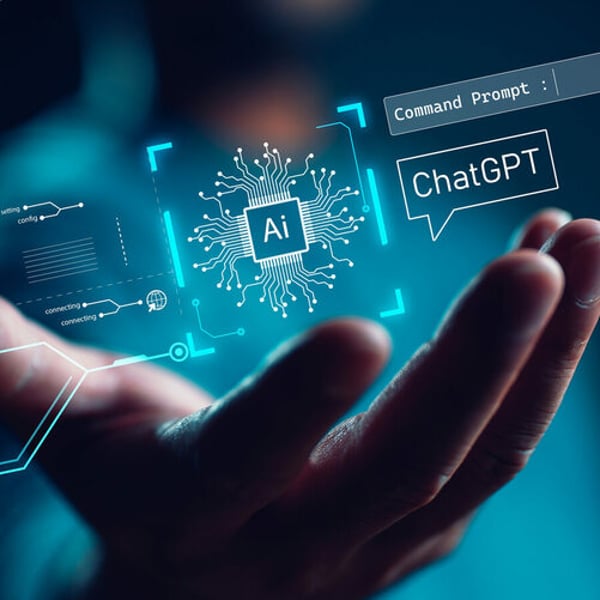Translated by
Nicola Mira
Published
Nov 23, 2023
OpenAI, which in the last year has emerged as the king of generative AI, risks collapsing after the ousting of its boss, Sam Altman, which in turn has triggered a major crisis, amid fears about the potential dangers of AI.
On the evening of Monday November 20, nearly 700 of the California start-up’s 770 employees signed a letter threatening their resignation if OpenAI’s board refused to stand down, according to several media reports.
US media have indicated that OpenAI’s board had criticised Altman for prioritising a headlong rush to expand OpenAI, the creator of ChatGPT, without taking time to analyse the risks associated with the unbridled growth of AI software.
According to Brendan Dolan-Gavitt, professor of computer science at NYU Tandon, this hypothesis was confirmed by the appointment of Emmett Shear as Altman’s successor. “[Shear] has often expressed concern about the security of artificial intelligence,” said Dolan-Gavitt.
“We have come to this because minuscule risks have been amplified by amateur sci-fi buffs and sensationalist journalists,” said Vinod Khosla, founder of private equity firm Khosla Ventures, a shareholder of OpenAI, in an article published by The Information website.
Among the threats posed by the proliferation of generative AI, there is the possibility that AI software may be used for military operations, for disinformation purposes, or even that it may become independent and attack humans. “It’s time to look at the risks linked to AI, but not to the point of slowing its progress and depriving us of its benefits,” said Khosla.
The events of the last few days highlighted the limitations of the approach followed by OpenAI, which wanted to put a non-profit holding company in control of a business in which corporate giants are investing billions of dollars.
OpenAI’s senior executives “had lost all sense of reality,” said Carolina Milanesi of consulting firm Creative Strategies. “How can you remain a non-profit company once you accept these kinds of sums from people like Microsoft?” she added.
According to the media, Microsoft has in fact released up to $10 billion to finance its partnership with OpenAI, notably by offering the firm massive data processing capabilities to develop its algorithms.
But Microsoft isn’t the only player eyeing a potential bargain following the upheaval at OpenAI. In the wake of the mass resignation threats, retail solutions provider Salesforce is keen to take advantage of this know-how pool.
“Salesforce will offer any OpenAI researcher who has tendered their resignation target-based incentives, in cash and shares, to immediately join our research team,” said CEO Marc Benioff on social media.
Microsoft the winner
The events that are unfolding “have highlighted the fact that we cannot let companies self-regulate AI while there are differences of opinion about their own governance,” said Gary Marcus, an AI specialist and entrepreneur, on X (formerly known as Twitter).
“Please let’s not give up on the AI Act; we need it now more than ever,” added Marcus, referring to the bill designed to set up a legal framework for AI currently being discussed in the European Union.

The OpenAI schism “will accelerate many things on the regulatory front,” warned Ryan Steelberg, CEO of Veritone, an AI-enabled data analytics company. However, “this will not slow down the race for generative AI. It’s just boardroom antics, strengthening Microsoft’s position,” said Milanesi.
Even if the situation is far from settled at OpenAI, Microsoft appears to be the big winner in this saga. Seemingly effortlessly, it has snapped up Altman, as well as several former executives who have chosen to leave OpenAI. According to Miguel Fierro, a senior executive at Microsoft, the latter’s CEO Satya Nadella is committed to hiring all OpenAI employees who will decide to resign should the company’s board fail to step down.
Microsoft, a global operating system and cloud computing giant, would turn into an AI leviathan too by absorbing OpenAI’s lifeblood, without having to worry about regulatory endorsement. “If Microsoft had tried to buy OpenAI, they would never have had the competition authorities’ approval,” said Milanesi.
“Microsoft has just made the cheapest acquisition ever,” said Paul Barrett, deputy director of NYU Stern’s Center for Business and Human Rights. “My concern,” he added, “is that this will accelerate the AI race,” spearheaded by private, for-profit companies, “and make people forget that all this should be a subject of public debate.”
(with AFP)
Copyright © 2023 FashionNetwork.com All rights reserved.







